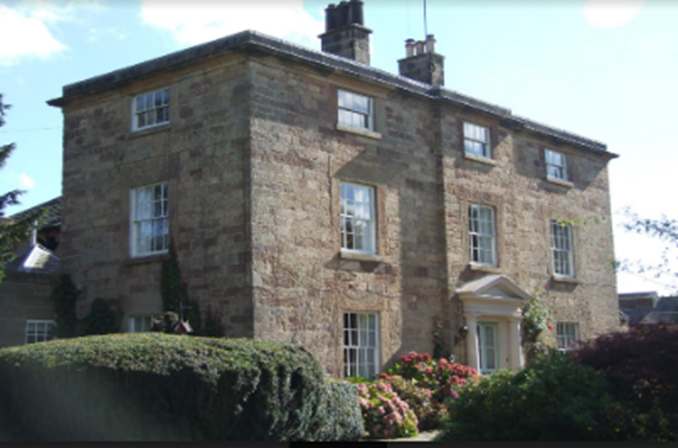Elms Farm, Duffield Road
The house and land at Elms Farm were owned by four families. First came John Hieron who was Rector of Breadsall between 1643 and 1662 but was “ejected” for non-conformity in 1662. His son, Joseph and his grandson, John, were both wealthy lawyers and added to the land in Little Eaton.
On John’s death in 1769, the farm passed to his daughter Elizabeth, who married Francis Radford. Another daughter Rachel, married John Radford, brother of Francis. Francis and Elizabeth had 7 children. He started a brewery in one of the barns. The brewery and farm went to the eldest son, another Francis. He married a cousin Martha, daughter of Anthony Radford (a brother of Francis senior). Francis died in 1801 but Martha lived on in the farm until 1835. Francis and Martha had 5 children, only one of whom, Mary, outlived her mother, Martha. When Mary died in 1847, she left the farm to her cousin, Jedidiah Strutt.
In 1847, the Strutts let the house and farm to Thomas Tatam. Thomas was over 60 when he took over the farm and when he married Mary (nee Alvey), 40 years his junior. They produced 7 surviving children. When Thomas died in 1864, his wife carried on the farm until their son, John Joseph was old enough to take over. John Joseph occupied the house with his wife, Annie, and four children. He was a pillar of Little Eaton society, a member of the Parish Council and the School Board. He left to become a farrier in Oxfordshire in 1909, leaving two daughters and two sons behind with his sister, Sarah Ragdale, at Furlong Farm.
By 1911, the farm was tenanted by Richard Finney Salt and his wife Mary. One of their sons, Harold, farmed in Mickleover and another, Reuben, continued to farm at The Elms, buying it from his landlord Mr Strutt in 1935. After the war the farm was let to the Oakden family. Harold’s son John Salt was left the farm in Reuben’s will and came to live in Little Eaton with his wife, Hazel, and his family.
The farm buildings have been converted into homes for their three children.
View of Elms Farm from the air, pre-war. Note the row of cottages opposite the farm on Station Road - these were workers cottages for Brook Mill, occupied mainly by workers from Scotland - it became known as “Scots Row” - now demolished.


